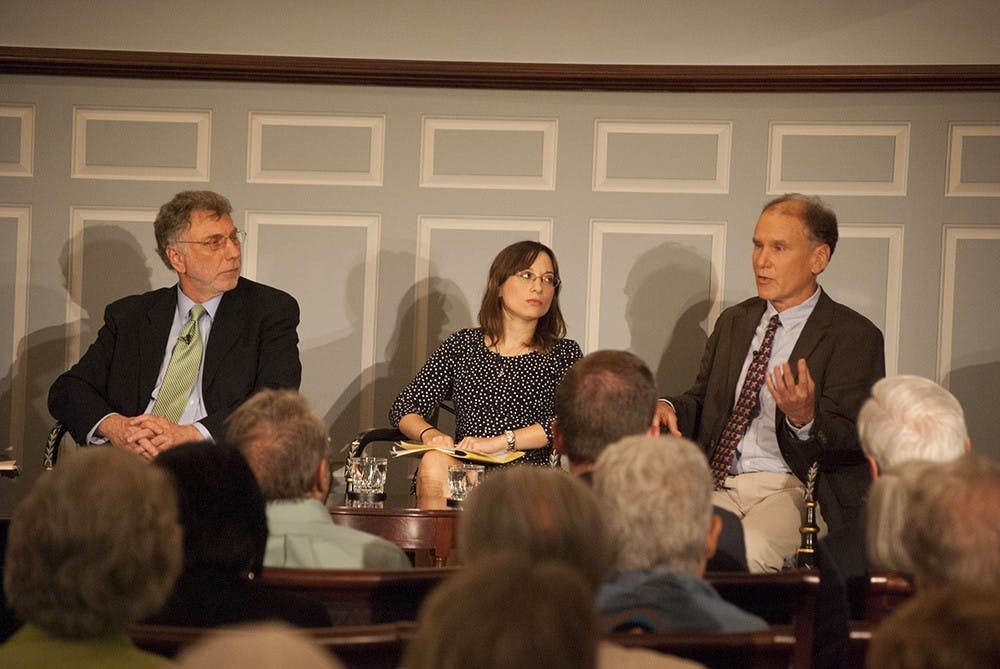A Miller Center town hall meeting discussing the state of the “American Dream” Wednesday developed into a discussion about changes to the AccessUVa financial program and higher education costs in general.
University faculty, students and Charlottesville community members had gathered to explore the results of a national survey which looked at the evolving definition of the American Dream and how it relates to the effects of the economic recession, technological change and education. The survey, conducted jointly by the center and The Washington Post, revealed inconsistencies between Americans’ perceptions of social mobility and actual empirical data.
Panelists at the forum included Washington Post executive editor Martin Baron, American Enterprise Institute researcher Jennifer Marsico, Cornell sociology professor Thomas Hirschl and Director of the Miller Center Forum program Doug Blackmon.
“A formal college education is the single most important thing in getting people closer to the American Dream,” Marisco said. “However, if you look at a question of whether colleges give people skills that get them jobs, it seems the higher the education level goes, the less likely you are to think that colleges are helping you.”
Hirschl, author of the upcoming book “Chasing the American Dream: Understanding What Shape Our Fortunes,” addressed the challenges high unemployment rates pose to the perceived attainability of the American Dream.
“We have a society that has worked very hard, and in return they expect [economic security as] part of the bargain,” Hirschl said. “[But] 80 percent of Americans are at risk of unemployment or poverty because of the way their employment trajectory has gone.”
As the forum opened to audience questions, several students voiced concerns about the affordability of a college education, particularly in light of the Board of Visitors’ recent decision to remove all-grant financial aid from AccessUVa’s offerings.
“The fact that the University of Virginia has made a decision that says that the American Dream is not part of its financial bottom line, that it is not a priority for hardworking, qualified students full of potential to be able to attend college even if they couldn’t afford it, that decision is the disintegration of the American Dream,” fourth-year College student Carl David Goette-Luciak said.
Though 57 percent of the Americans aged 18 to 39 identified the opportunity for a college education as the definition of the American Dream, the survey also found that 73 percent say it has recently become harder to pay for college.
Seventy-three percent of young Americans do still believe, however, that they will move up in social class in the next few years.
Many students at the forum also called for a re-evaluation of the definition of the American Dream to be consistent with economic and political challenges faced by younger generations.
“I think we need to realize the American Dream isn’t a singular dream,” third-year Batten student Michael Reilly said. “It’s important to give American people a reason to believe in the American Dream, and a chance to strive for it.”







